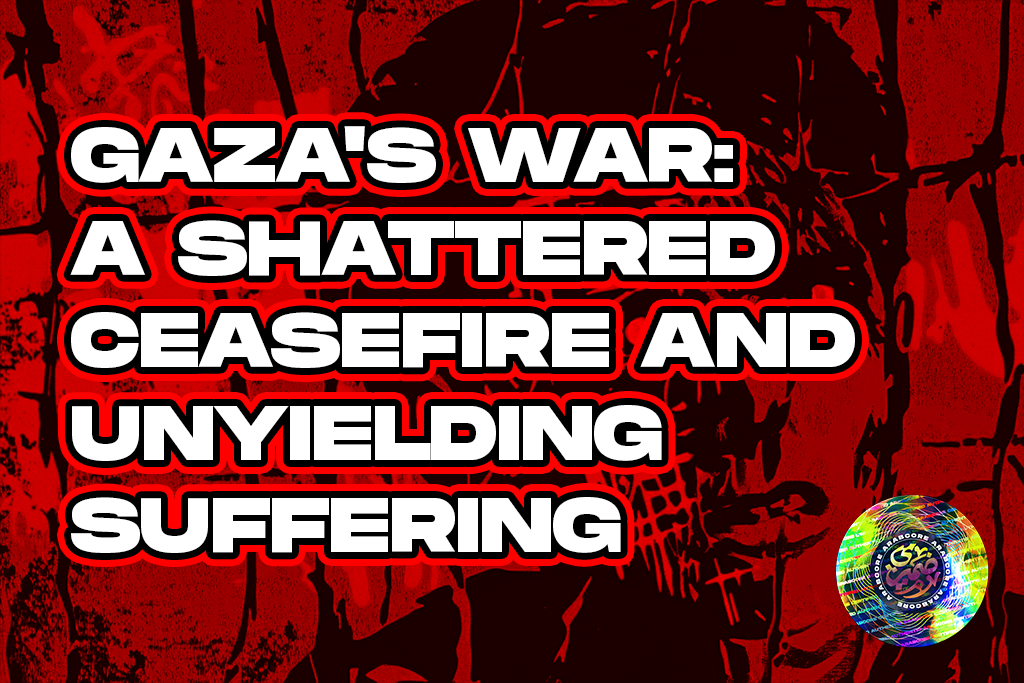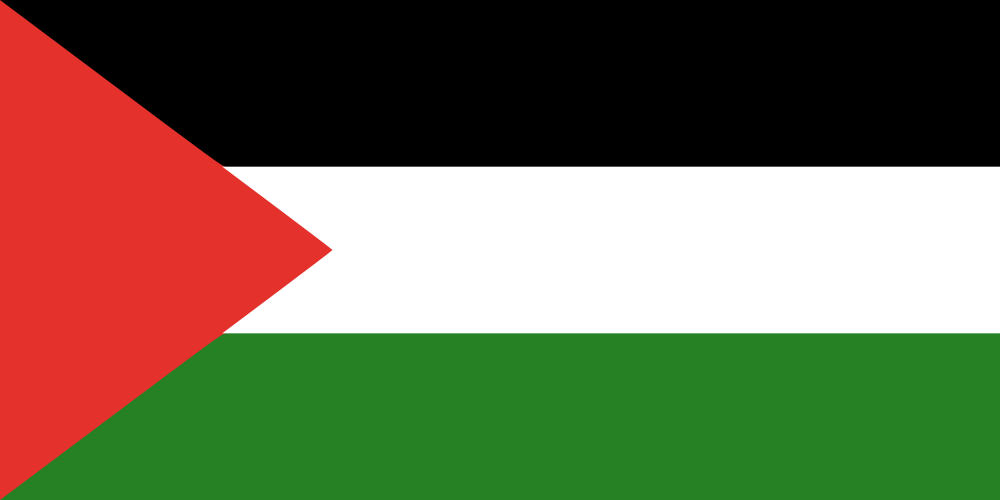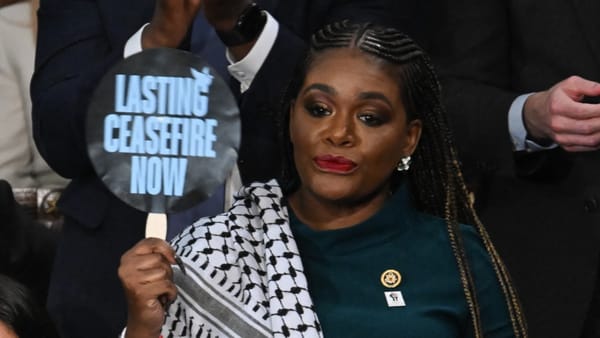Gaza's War: A Shattered Ceasefire and Unyielding Suffering

March 19th, 2025
As the world bears witness to yet another devastating chapter in the ongoing conflict between Israel and Palestine, the situation in Gaza has once again spiraled into unspeakable horrors.
March 18, 2025, marked the violent resumption of airstrikes by the Israeli military, breaking a fragile ceasefire and plunging Gaza into a renewed wave of death and destruction. The attacks left over 400 Palestinians dead, many of them women and children, and ignited global outrage over Israel's actions, as well as the international community's seeming impotence in halting the bloodshed.
A New Nightmare: Families Torn Apart
For the civilians of Gaza, the violence is nothing new. But for many, this attack has struck at the very core of their already shattered lives. Families that had started returning to the rubble of their homes after a two-month ceasefire found their lives shattered again in the early hours of March 18, as Israeli jets and drones tore through the region. Residential neighborhoods, crowded with displaced families, were bombed without warning, and the streets became rivers of blood as the casualty toll rose by the hour.
One of the most poignant accounts of this brutality comes from Ramy Abdu, a human rights activist who lost his sister and her entire family in a bombing raid. The tragic loss was compounded by the devastating realization that many of the victims were innocent children. Abdu’s grief was echoed by countless others who have seen their loved ones slaughtered in the ongoing conflict.
“It is genocide, and the world continues to turn a blind eye,” Abdu tweeted, his words a heart-wrenching cry for justice. His statement underscores the grim reality faced by millions of Palestinians in Gaza, who live in constant fear of death, displacement, and destruction.
The Psychological Cost: A Generation at Risk
The human cost of Israel's military campaign is not only measured in lives lost but also in the psychological toll on the children of Gaza. UNICEF reports that nearly all of Gaza’s 1.2 million children require psychological support, with many having witnessed traumatic events that will likely haunt them for the rest of their lives. From Sama Tubail, the eight-year-old girl who dreams of having her hair grow back after losing it to stress and trauma, to Anas and Du'a, two young siblings who lost their parents in an Israeli drone strike, the psychological scars are as profound as the physical ones.
Dr. Yasser Abu Jamei, director of Gaza’s Community Mental Health Program, describes the situation as a “generation traumatized.” The horrors of war, especially when experienced by children, can leave lasting damage that no ceasefire can heal. While some children have begun to speak about their grief through drawing therapy, many others remain silent, their trauma too deep to express.
As the violence escalates, experts warn that without immediate intervention, the psychological damage to Gaza’s children will continue to grow. The trauma is not just a consequence of physical violence but also the obliteration of normalcy and hope for a better future.
The Renewed Airstrikes: An Israeli Strategy for Destruction
Israel's decision to break the ceasefire and resume its assault on Gaza has sparked widespread condemnation. Israeli officials argue that the airstrikes are part of a military strategy to destroy Hamas and secure the release of Israeli captives held in Gaza. But many observers see this as an excuse for the continued violence, with Israel accused of using the captives as a pretext to justify the indiscriminate bombing of civilian areas.
The international community, including the United Nations, has condemned Israel’s actions, with many calling it a clear violation of international law. The European Union and various humanitarian organizations, including Amnesty International and Human Rights Watch, have decried the violence, urging Israel to halt its attacks and allow humanitarian aid to reach Gaza.
Yet, despite global outcry, the cycle of violence continues. With no tangible pressure from international powers to stop Israel’s actions, the war is poised to escalate further. The U.S., which has long been Israel’s ally, has remained largely silent on the issue, offering only tepid condemnations of the violence while continuing to provide military support.
The Humanitarian Crisis: A Siege on Gaza’s Survival
The humanitarian situation in Gaza has reached a breaking point. In addition to the destruction wrought by airstrikes, Israel’s blockade on Gaza has crippled the region’s ability to cope with the devastation. Hospitals are overwhelmed, and essential medical supplies, including food, water, and medicine, have been cut off, exacerbating the suffering of an already vulnerable population.
The United Nations has warned that the siege on Gaza has reached a crisis level, with hundreds of thousands of people displaced and no safe place to seek refuge. Refugee camps, already overcrowded, are now facing a dire shortage of food and clean water, and families are left scrambling for survival as their homes and livelihoods are obliterated. For Gaza’s residents, even the most basic human needs are being denied.
The Global Response: A Call for Accountability
Despite the horror unfolding in Gaza, the international response has been inadequate at best. Protests have erupted worldwide, calling for an end to the violence, but so far, these calls have been met with silence from powerful nations. While countries like Qatar and Turkey have voiced strong opposition to Israel’s actions, the U.S. and other Western allies have continued to support Israel, even as it carries out what many are now calling a genocidal campaign.
The question remains: When will the world hold Israel accountable for its actions in Gaza? And more urgently, when will this bloodshed end?
As the bodies pile up in Gaza’s hospitals and the cries of the wounded fill the air, the people of Gaza wait, not for peace, but for survival. In the words of one Palestinian mother, “We just want to live.” Yet, with every passing day, that simple wish feels more and more out of reach.
In Gaza, where hope is a scarce commodity, survival has become the ultimate act of resistance. And as Israel continues its assault, the world watches in horror, asking itself: how long can this go on before the cries of the oppressed can no longer be ignored?
Written By Dhamiri
Copyright © 2025 Arabcore | All Rights Reserved
Published on March 19, 2025



